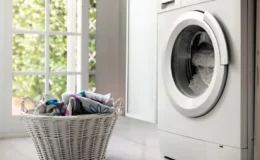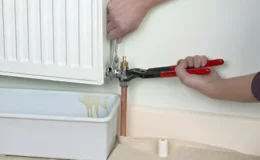🕑 6 minutes read

If you own or manage a property, you are responsible for ensuring the safety of those who live in or visit the premises. One such important responsibility is obtaining a gas safety certificate, also known as a CP12 certificate. However, there are many misconceptions surrounding gas safety certificates that can lead to confusion and potential risks.
Stay with us as we’re going to address five common misconceptions about gas safety certificates and provide you with essential information so that you can confidently ensure the safety of your property.
Understanding Gas Safety Certificate
A gas safety certification, also known as a CP12, is a legal requirement for landlords. This certificate ensures that all gas appliances in the property are safe to use and meet the required safety standards. As a landlord, you hold a significant responsibility: ensuring your property receives its annual CP-12, also known as a gas safety check.A Gas Safe certificate is issued by a registered engineer after they have inspected and tested all gas appliances in the property. It includes information about the engineer's findings, any defects or potential issues, as well as recommendations for necessary repairs or replacements.
Top 5 Common Misconceptions About Gas Safety Certification

[EXPLAINED BY EXPERTS]
#1: I Don't Need a Gas Safety Certificate If I Have an Electric Stove
One of the most common misconceptions about gas safety certification is that they are only necessary for homes with gas stoves or boilers. Some people may believe that they do not need a gas safety certificate because they have an electric stove. However, this is not the case.
In actuality, a gas safety certification is necessary for each house that has gas appliances, like a gas water heater or oven.
“Even if you have an electric stove, your home may still have other gas appliances that must be checked for safety hazards.”
If you share a building with other properties that have gas appliances, you are still responsible for the gas supply and pipework in your property. Therefore, it is essential to have these inspected and certified as safe.
#2: I Need a Gas Safety Certificate When Selling My Property

No, if you're planning to sell your property, there is no requirement for you to have a Gas Safety Certificate.
Only landlords are legally required to provide their tenants with a gas safety certificate every 12 months.
#3: I Can Do My Own Gas Safety Inspection
It is a common misconception that homeowners or landlords can carry out their own gas safety inspections. Attempting to carry out a gas safety check yourself puts you at risk, as well as your tenants and property. Gas equipment can be dangerous if not installed or maintained properly, leading to potential gas leaks, carbon monoxide poisoning, and even explosions.
[Important]
It is illegal for anyone who is NOT a registered gas engineer to perform gas safety checks or issue certificates. This means you are breaking the law by doing it yourself (DIY) and could face serious consequences, such as hefty fines or imprisonment.
Gas safety inspections and issuing certificates should only be carried out by qualified and registered gas engineers. These professionals have the necessary training and knowledge to assess gas appliances and identify potential hazards properly. They also have access to specialised equipment and tools that allow them to carry out thorough inspections.
#4: I Can't Get a Gas Safety Certificate If My Appliances Fail the Inspection
Some people believe that if their gas appliances fail the safety check, they won't be able to get a gas safety certificate. However, this is not necessarily true. A gas engineer's job is to identify any issues with your equipment, accurately report the gas safety condition and issue the certificate accordingly. It may be pass or fail.
If your appliances fail the inspection, it means there are safety hazards present that need to be addressed for the safety of everyone in the home.
If you have a ‘failed’ gas safety certificate, serviceteam can provide you with a remedial work quote to accurately fix the issues. Once the issues are fixed properly, we can give you an updated gas certificate.
#5: The Inspection Takes Too Much Time and Is Inconvenient

Some homeowners and landlords avoid getting a gas safety certificate because they believe the inspection process is time-consuming and inconvenient. However, a professional and qualified gas engineer will usually complete the check within an hour, not causing any significant inconvenience. Additionally, it is a small price to pay for knowing that your home and family are safe from potential gas hazards.
Avoid the Above Misconceptions!

A gas safety certificate is essential as it serves a few crucial purposes.
Ensure the Safety
Regular checks can detect problems with gas appliances early on, preventing potential gas leaks, accidents or even carbon monoxide poisoning.
Avoid Fines
According to the Gas Safety Regulations 1998, It is also a legal requirement for landlords to provide their tenants with a valid certificate every 12 months. If this isn't done, there may be severe penalties and perhaps jail time.
“Penalties for landlords who don't obtain Gas Safety Certificates can amount to as much as £5000. Additionally, in the event of a gas-related incident on the property, a landlord may face imprisonment.”
A valid rent agreement needs a copy of the certificate
Landlords are legally obligated to furnish tenants with a copy of the gas certificate within 28 days of moving in or when selling a property. If the landlord refuses, tenants have the authority to report the landlord to the Health and Safety Executive (HSE), who may then take legal action against the landlord.
The first step in obtaining a gas safety certificate is to hire a qualified and registered gas engineer. They will thoroughly check all of your gas appliances, including boilers, ovens, and heaters, for any potential hazards. If all is well, the engineer will provide a gas safety certificate that lasts for 12 months.
If any issues are found during the inspection, the engineer will provide you with a report outlining the problems and recommendations for repairs or replacements. Once these issues have been addressed, the engineer can then provide you with a certificate.

[Final Thought]
Safety comes first!
Let's debunk these myths once and for all for a safer home and community. And always remember, when it comes to gas appliances, trust the professionals.
Call Serviceteam Gas Safe Engineers
Serviceteam has been a trusted industry leader for over a decade, delivering exceptional service to our customers. We hold numerous licences, registrations, and accreditations, ensuring full compliance with industry and government legislation. Safety is our utmost priority.No matter the time of day, Serviceteam is here for you, 24/7. When you need an urgent CP12 (landlord's gas safety certificate), contact us. Our goal is to make the process of booking your CP12 certificate as convenient and effortless as possible.
Are you ready to secure your annual CP12/gas safety Certification?
Book a serviceteam engineer now!






